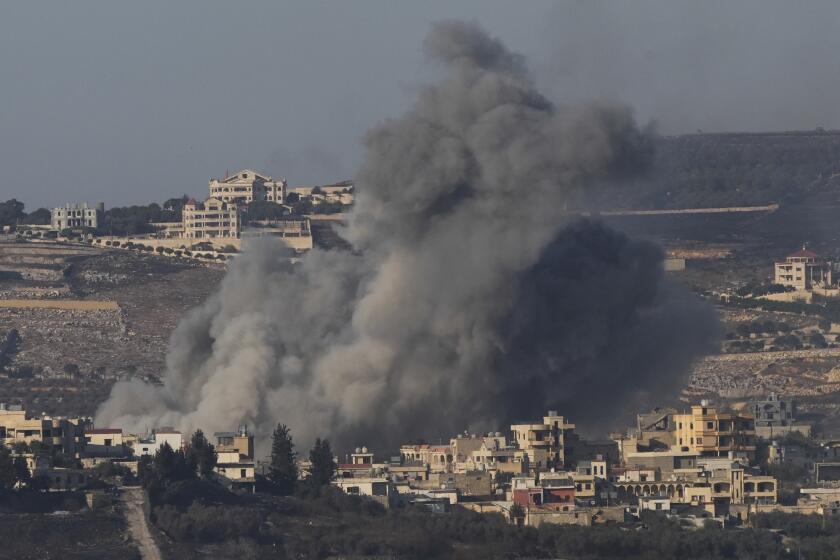Russia Plays Down Iran Aid
After three days of tense talks with top U.S. envoys, Russian officials appeared to back away a half-step Friday from plans to expand their nuclear cooperation with Iran.
The Russian Atomic Energy Ministry issued a statement saying that a program announced last week to expand the number of nuclear reactors it plans to build in Iran is only a list of “existing technical possibilities.”
“Their implementation depends on many factors, including political factors,” the statement said.
One U.S. official familiar with the talks described the new Russian statement as “big progress.”
“We’re very pleased,” the official said. “That’s a change from what they were saying early in the week.”
Since 1995, Russia has been working to complete construction of a nuclear reactor in the Iranian city of Bushehr, a project begun by the German firm Siemens and abandoned after the Iranian revolution in 1979.
The plans released last week described a much larger, $10-billion program of nuclear cooperation--three more reactors at Bushehr and two at a new site, Ahvaz, bringing the total to six over the next 10 years.
That program was announced just days before the scheduled arrival of two U.S. officials--Energy Secretary Spencer Abraham and Undersecretary of State John R. Bolton.
Russian officials insist that the reactors are for civilian energy use only and will not be used to develop fuel for nuclear weapons. They point out that they will be light-water reactors, with the same technology the United States is using in North Korea in an effort to rein in that country’s nuclear program.
But the United States believes that Iran’s purpose in acquiring the reactors isn’t energy but the expertise and equipment it would gain along the way.
“We have long been concerned that Iran’s only interest in nuclear civil power, given its vast domestic energy resources, is to support its nuclear weapons program,” Abraham told a news conference here Thursday. “For that reason, we have insistently urged Russia to cease all nuclear cooperation with Iran, including its assistance to the reactor in Bushehr.”
Russian nuclear experts suggested that the release of the new plan last week was a negotiating tactic.
“There is a strong impression that is shared by many Russian experts that the United States and Russia have already reached a mutually acceptable agreement on Iran--everything is in the bag already,” said Anton Khlopkov, a nuclear expert with the PIR Center, a Moscow think tank. “Both sides seem to have an understanding that Russia will supply light-water reactors to Iran, but nothing besides such reactors.”
But Radzhab Safarov, director of Russia’s Iranian Studies Center, said that to convince Moscow to drop its programs in Iran, the United States will have to put its money where its mouth is.
“Iran is a solvent country that is quite capable of paying,” Safarov said. “The West, however, confines its efforts to words alone: Do not do any business with Iran because it will affect global security. These are good words, but they are just words, nothing else. It is very unlikely that Russia will be convinced to change its priorities only with the help of words.”
Iranian diplomats are expected to visit Moscow later this month to discuss nuclear cooperation in more depth, according to Russian news agencies.
*
Alexei Kuznetsov of The Times’ Moscow Bureau contributed to this report.
More to Read
Sign up for Essential California
The most important California stories and recommendations in your inbox every morning.
You may occasionally receive promotional content from the Los Angeles Times.










